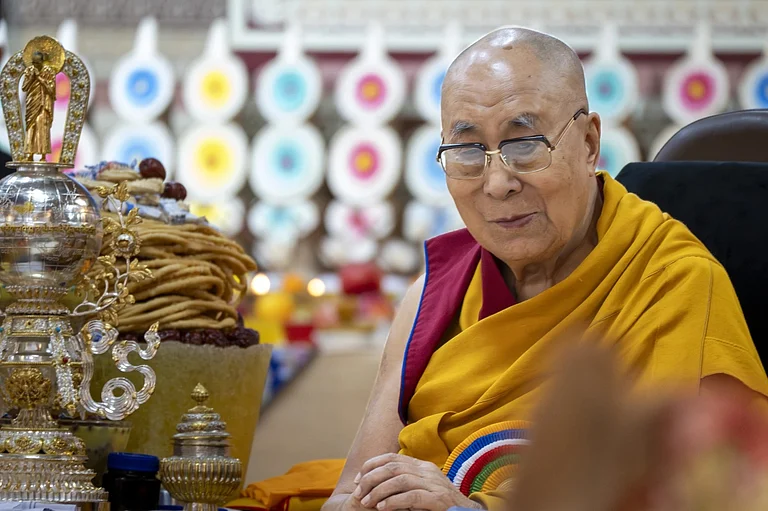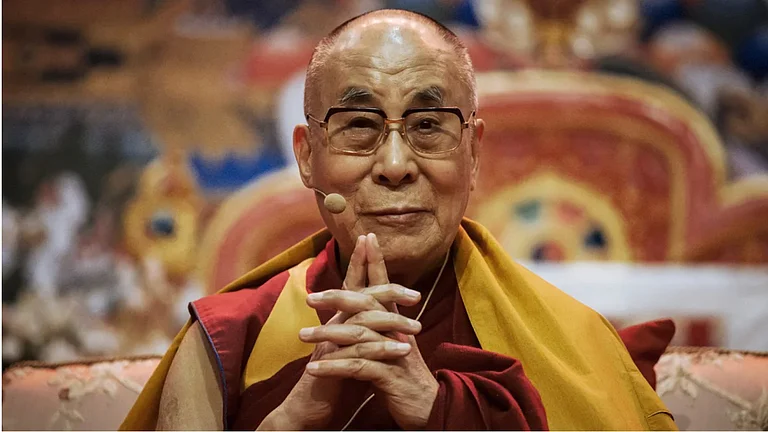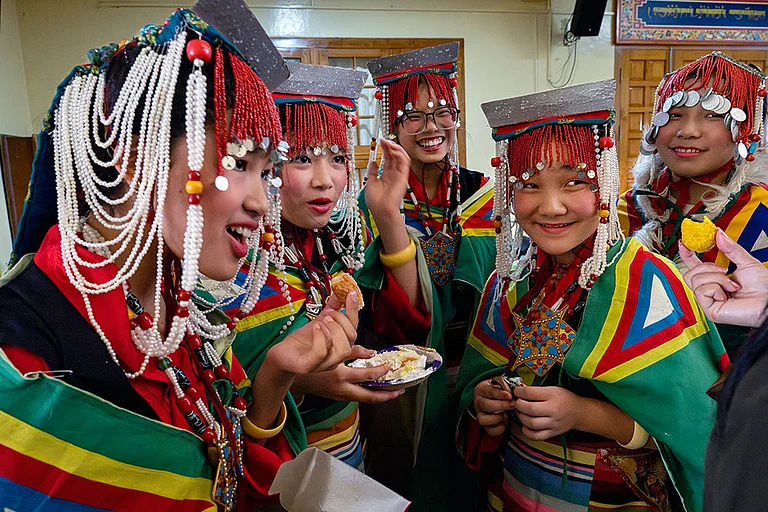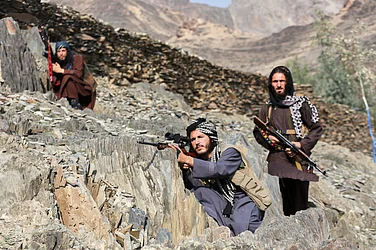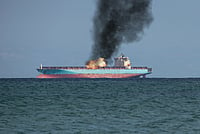Tibetan spiritual leader Dalai Lama on Wednesday confirmed that the sacred institution of the Dalai Lama will continue and authorised Gaden Phodrang Trust to recognise his future “reincarnation” while declaring no one else can "interfere" in his succession plan.
The statement by the 14th Dalai Lama Tenzin Gyatso has led to speculations over the selection process of his successor to be conducted before or after his death. The Gaden Phodrang Trust, a non-profit organisation, was founded by the Office of Dalai Lama in 2015.
China has rejected the Nobel Peace laureate’s succession plan, insisting that any future heir must receive its seal of approval, adding a new chapter to Tibetan Buddhism's decades-long struggle with the Chinese ruling Communist Party.
Who Is Dalai Lama?
The Dalai Lama is the highest priest in Tibetan Buddhism, followed by Panchen Lama, the second-high priest and they have to go through the centuries-old tradition of the Golden Urn law procedure started by the 18th century Qing dynasty in order to be chosen as one.
According to the Tibetan Buddhist tradition, it is believed that the soul of a Buddhist monk is reincarnated after his death.
The 14th and the current Dalai Lama was born as Lhamo Dhondup on July 6, 1935 in China's Qinghai province. His name is Tenzin Gyatso who was only two years old when identified as a reincarnation of a monk.
How Is Dalai Lama Successor Chosen?
The process of choosing the spiritual leader of Tibetan Buddhism is rooted in centuries-old traditions, spiritual beliefs, and rituals.
According to traditions, the Dalai Lama is considered as the reincarnation of Avalokiteshvara who is the Bodhisattva of Compassion and the 14 Dalai Lamas who have been chosen one after the other are considered to be reincarnations of the spiritual leader.
The selection process of the reincarnated Dalai Lama begins after the death of the current leader. The high-ranking leaders in the religion form a search committee to find their next highest priest.
Some of the rituals that are followed in this process includes, the direction of the smoke blowing from his cremation, the direction where he was looking when he died, and oracles’ visions, including at Lhamo Latso, a lake considered holy in Tibet, as per reports.
The candidates shortlisted by the committee needs to go through tests to be chosen as the one. Usually young boys who were born during the time of the previous Dalai Lama's death are looked for by the committee.
Earlier, the Dalai Lama had maintained that the Tibet's most sacred tradition could be wound up, or his successor could be a woman or someone born outside China.
Once the selection procedure is over, the child needs to go through education in Buddhist philosophy and scriptures and they will be trained to carry out leadership responsibilities in order to assume the role of both a spiritual and traditionally, political leader of the Tibetan people.
How Was 14th Dalai Lama Chosen?
According to reports, the 14th Dalai Lama was found four years after his predecessor died.
As per reports, the search committee back then found the two-year-old Tenzin Gyatso saying "It's mine, it's mine" when looking at the belongings of the 13th Dalai Lama.
Statement By 14th Dalai Lama On Choosing His Successor
In a statement made on May 21, 2025 in Tibetan language and released by his office in Dharamshala on Wednesday, he said that the Gaden Phodrang Trust has the sole authority to recognise the future Dalai Lama.
"I am affirming that the institution of the Dalai Lama will continue and I hereby reiterate that the Gaden Phodrang Trust has sole authority to recognise the future reincarnation. No one else has any such authority to interfere in this matter," the statement said.
During a meeting of the heads of Tibetan spiritual traditions on September 24, 2011, the Dalai Lama had stated that "as far back as in 1969, I made clear that people concerned should decide whether the Dalai Lama's reincarnations should continue in future." He had stated that when he will be 90 years old, he will consult the high Lamas of the Tibetan Buddhist traditions, the Tibetan public, and other people who follow Tibetan Buddhism to evaluate whether or not the institution of the Dalai Lama should continue.
Dalai Lama's statement issued in India on Wednesday said, "I have received messages through various channels from Tibetans and Tibetan buddhists living in other parts of the world requesting that the institution of Dalai Lama should continue. I am affirming that the institution of the Dalai Lama will continue."
He said the responsibility to recognise the future reincarnation rests with the members of Gaden Phodrang Trust, Office the Dalai Lama who should consult various heads of the Tibetan Buddhist traditions, and the reliable oath-bound Dharma Protectors who are linked inseparably to the lineage of the Dalai Lamas.
"They should carry out the procedures of search and recognition in accordance with the tradition," the statement added.







